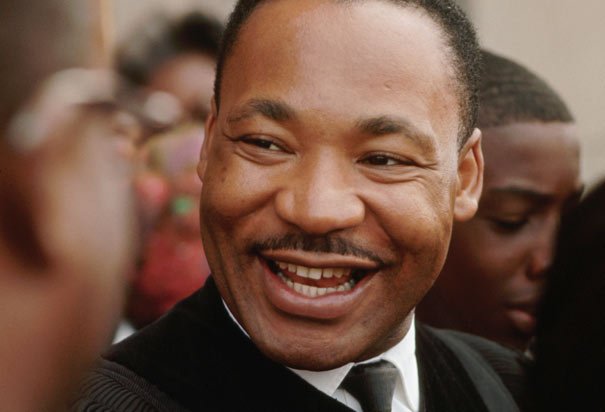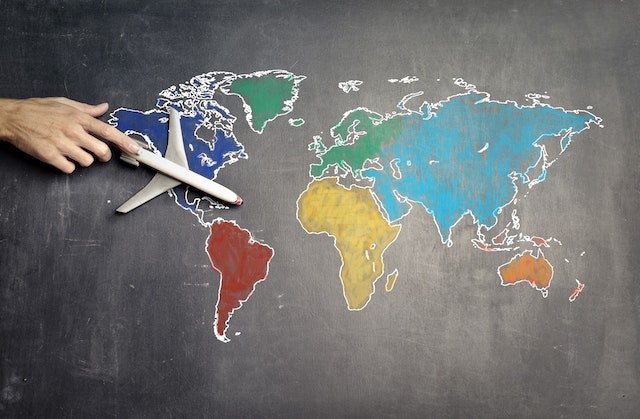
Martin Luther King Jr.
Follow Your Dream! A Change is Coming. MLK, or Dr. Martin Luther King Jr., was one of the world’s greatest political leaders. A Baptist preacher, the humanitarian was also the leader for the African-American Civil Rights Movement. As a Christian activist and organizer, he believed in achieving civil rights goals by peaceful political means. He was against violent victories.
Dr. Martin Luther King Jr. was born on January 15, 1929. Born in Atlanta, Georgia, his parents were Martin, Sr. and Alberta King. He was born Michael King. He had one sister and one brother. They were Christian and Alfred Daniel King, Martin was the middle child.
The father of Dr. Martin Luther King Jr. was pastor of Ebenezer Baptist Church. After attending Berlin’s Fifth Baptist World Alliance Congress, he changed their names. The name change was in honor of the German reformer Martin Luther. Martin Luther is the Father of the Protestant Reformation. His rebellion, as it was called, changed Christianity forever. The famous theologian came against erroneous practices of the Roman Catholic Church.
At age 5, Dr. Martin Luther King Jr. joined Ebenezer Baptist Church. He was baptized and loved to sing. His favorite song was I Want to Be More and More Like Jesus. He sang at several churches. King also sang in the choir. In 1939, the choir sang in the Gone With the Wind premiere.
Elder Martin L. King, Sr. was determined to help God make his son a success. The neighbors listened as he chastised his son. He would say,“I am going to make something out of you even if I have to beat you to death.” Proverbs 22:15 states, Folly is bound up in the heart of a child, but the rod of discipline will drive it far away.
Several childhood incidents shaped Dr. Martin Luther King, Jr.’s mindset. He paid attention while his father handled intentional public offenses. He saw how his father dealt with being called “boy.” Martin King, Sr. refused to be served from the back door of a business.
King Jr Suffers Depression
Racial discrimination and family matters affected the health of Dr. Martin Luther King Jr. He suffered from depression during his teen years. At age 12, his maternal grandmother died and blamed himself. He tried to commit suicide by jumping from a second-story window. Thank God, he survived. He began to encounter the humiliation and disrespect his parents had been facing. Resentment set in. It was hard trying not to hate whites just as much as they hated him.
“Let no man pull you low enough to hate him.”
Dr. Martin Luther King Jr.’s Sunday School teacher was in for a shock. At age 13, Martin began to question Christianity. Did the bodily resurrection of Jesus really happen? He also had difficulty accepting the law of unconditional Christian love. How can you love someone who hates you because of your skin color? During his junior year, his heart changed.
Dr. Martin Luther King Jr. attended Booker T. Washington High School. He was the assistant manager for one of the Atlanta Journal newspaper delivery stations. He was a great public speaker and was on the school’s debate team. At 14, he placed first in a Negro Elks Club oratorical contest in Dublin, Georgia. On the way back home, a bus driver made them give their seats to white passengers. His teacher was, finally, able to get him to comply. It was 90 miles to Atlanta. Martin described it as “the angriest I have ever been in my life.”
Martin Luther King Jr. History
Dr. Martin Luther King Jr. was academically advanced for his age. He skipped grades 9 and 12. During World War III, enrollment was down at Morehouse. Most of the students were being drafted for war. The college president, Benjamin E. Mays, began to accept high school juniors. Martin finished 11th grade. He passed the college exam and enrolled in Morehouse at age 15.
In 1947, at age 18, Dr. Martin Luther King, Jr. left college. Initially, he wanted to be a doctor or a lawyer. However, he did come from a lineage of preachers. “An inner urge to serve humanity” from another perspective came from the depths of his soul. In his I’ve Been to the Mountaintop speech, he said he just wanted to do God’s will. He made his peace with the Black Baptist Church. Martin preached his trial sermon at age 19 and was ordained as a minister.
Dr. Martin Luther King Jr. was not the traditional hard-breathing “whoop and holler” preacher. He was a teaching preacher. His sermons were described as a “respectful force for ideas, even social protest.” He aimed to give the congregants a lasting message and something to think about and do after the sermon was over. King preached to their hearts instead of to their emotions. He believed in a “Look and Live” now gospel. Not in waiting on the, “Sweet Bye and Bye,” for life to get better. God’s will needed to be done “on earth as it is in heaven,” now!
Martin Luther Returns to College
Encouraged by his father, Dr. Martin Luther King Jr. resumed his academic endeavors. While pastoring, he received a Bachelor of Arts Degree in Sociology from Morehouse. In 1951, he needed to escape his father’s shadow. The racial ghosts of the south were also pressing and enrolled in Crozer Theological Seminary in Chester, Pennsylvania. He graduated from the predominantly white institution with a Bachelor of Divinity Degree and was Class Valedictorian.
Martin returned to Atlanta. For blacks, there was no such thing as “southern hospitality.” It was somewhat better in the north. However, the personal freedoms were very limited to some degree. Boarding the train in DC, he was regaining his sense of social reality. It was back to the back. For some reason, it seemed as if things had gotten worse in his absence.
In 1953, love was in the air for Dr. Martin Luther King Jr. He married the future Coretta Scott King. She was a concert pianist. They announced their engagement on Valentine’s Day. King married lively, gentle, attractive and renowned Coretta Scott on June 18, 1953. Four children were born. They were Yolanda, Martin Luther King, III, Dexter Scott and Bernice.
“We must accept finite disappointment, but never lose infinite hope.”
Pastor Martin Luther King Jr.
In 1954, while working on his dissertation, Dr. Martin Luther King,Jr. began to pastor full-time. Dexter Avenue Baptist Church in Montgomery, Alabama was his assignment. In 1960, he co-pastored Atlanta’s Ebenezer Baptist Church with his father. He was the Vice-President of the National Sunday School for the National Baptist Convention. He was also Vice-President of the Baptist Teaching Union Congress of the National Baptist Convention.
June 5, 1955, Dr. Martin Luther King Jr. received a Ph.D. in Systematic Theology from Boston University. His dissertation was, “A Comparison of the Conceptions of God in the Thinking of Paul Tillich and Henry Nelson Weiman.” It was said that his paper made an “intelligent contribution to scholarship.” In 1957, he received a Doctorate of Divinity from Chicago Theological Seminary and a Doctor of Divinity from Boston University in 1959. King was also enrolled in classes at Harvard, Yale, University of Pennsylvania and Edinburgh in Scotland.
Dr. Martin Luther King Jr. developed an interest in social activities. He called on other young African-Americans to “bear the burdens of the Negro race” in their lifestyle and habits. He joined the NAACP and was president of the Montgomery Improvement Association.
Dr. Martin Luther King Jr. shared his stance concerning his role as an activist and a minister. “Before I was a civil rights leader I was a preacher of the Gospel.” His sermons mainly focused on Jesus and the gospels. Martin’ nonviolent perspective was taken from Jesus Gospel. He stressed loving your neighbor as yourself, by turning the other cheek.(Matt. 26:52). He used quotes from Christian peace-lovers from other races. King also attended a Billy Graham Crusade.
The Montgomery Bus Boycott set the stage for Dr. Martin Luther King Jr.’s activist career. It began in March 1955 when Claudette Colvin, a black teen, refused to surrender up her seat to a white man. She was arrested. The pregnant teenager sat in jail for hours. It happened again in December of 1955. Rosa Parks resisted bus segregation. She was arrested and put in jail. Dr. King planned a 382-day bus boycott. The boycott ended racial discrimination on public buses. In 1957, he helped form the Southern Christian Leadership Conference (SCLC). This part of the dream organized and empowered churches to launch nonviolent civil rights reform movements. this would also be the start of the Albany movement in 1961. Dr. Martin Luther King Jr. experienced both the southern and northern racial discrimination divide.
“Nonviolence is a powerful and just weapon which cuts without wounding
and ennobles the man who wields it. It is a sword that heals.”
Martin Luther King Jr. Goes to India
Dr. Martin Luther King Jr. had another dream. He wanted to go meet Mahatma Gandhi of India. Harris Wofford, the American Friends Service, and others provided him with the funding. He made the journey in April of 1959. On radio in India, he referred to “nonviolent resistance” as a “potent weapon”… for oppressed people….in their struggle for justice and human dignity.”
Martin Luther King Jr. spoke at the New York”s New School University on February 6, 1964. Martin Luther King Jr. speeches were part of a lecture series, The American Race Crisis. A recording took place during the speech. After the lecture, the recording for the speech was nowhere to be found. However, in 2013, the school found a 15-minute recording of the question-answer session.
During the presentation, Dr. Martin Luther King, Jr. shared the contents of his conversation with Jawaharlal Nehru. King talked about the past and present plight of African-Americans. Nehru discussed the sad historical and modern difficulties of the untouchables in India. They pointed out the similarities and differences between the two people groups.
Also, in 1964, the SCLC, and Dr. Martin Luther King Jr. were called to the St. Augustine Movement. Dr. Robert B. Hayling, a dentist and retired Air Force officer needed help. The NAACP youth leader was dismissed because of his warlike tactics. Despite the 1954 “separate but equal” ruling, Jim Crow was still alive. Law enforcement and hate groups were merciless. Abuse, terror, murder and intimidation were at an all-time high. LBJ signed the Civil Rights Act on July 1, 1964. It would end racial discrimination in public places and public services. Martin Luther King Jr. visited the historic Emanuel AME Church in 1962 during the height of the Civil Rights Movement. Renowned Evangelist Billy Graham was there as well.
Voting Rights Act of 1965
The continued efforts of Dr. Martin Luther King, Jr. and others led to the Voting Rights Act of 1965. Five days after the March on Selma, President Johnson made an announcement. Voter registration changes would take place at the federal, state and local levels. The racism barriers to voting were going to be removed. No longer could anyone be denied the right to register to vote or vote. Also, literacy tests and poll taxes were eliminated as prerequisites to voting.
In 1966, Dr. Martin Luther King, Jr. and the SCLC, Mayor Daley and Rev. Jesse Jackson had another river to cross. They started making plans for the Chicago Movement. It was time to take the nonviolent social ministry to the North. The evil spirits of “poverty and ghetto” needed to go. Segregated housing, schools, and employment was wrong. Dr. King’s “hands on experience” included moving his family into a Chicago slum. Violence was terrible. Public housing and “any race” mortgage plans were discussed. King called it “the first step in a 1,000-mile journey.”
“Faith is taking the first step even when you don’t see the whole staircase.”
In 1967, the war on poverty and the Vietnam War were on Dr. Martin Luther King Jr.’s agenda. His speech was entitled, Beyond Vietnam. It led to losing supporters. In 1968, he was planning for another gathering in DC. It would be the Poor People’s Campaign. He wanted to put pressure on President Johnson. He wanted economic rights for the urban and rural poor of all races. King also pushed for slave labor compensation for all disadvantaged people groups.
Martin Luther King Jr. Betrayed
In 1968, Dr. Martin Luther King was offered an independent presidential election ticket. He refused. He wanted his calling to be free from political restraints. King had been betrayed by both the Democratic and Republican parties. The decision was hard whether to vote for Adlai Stevenson or Dwight Eisenhower. He spoke highly of Democratic Senator Paul Douglas for his civil rights efforts and voted privately for John F. Kennedy. Dr. King encouraged Black voters not to vote for Republican Senator Goldwater.
Dr. Martin Luther King Jr. was supported by Christian and non-Christian leaders. The SCLC leaders, nonviolence scholars, religious authorities, business associates and others worked with him. Bayard Rustin was his regular advisor. He helped organize the March on Washington. Protestant theologians Paul Tillich and Reinhold Niebuhr were also advisers. Henry Nelson Wieman, Harris Wofford, and Glenn Smiley were also consultants, just to name a few.
Most importantly, the nonviolent career of Dr. Martin Luther King Jr. began with a rich and godly family heritage. Apart from family, Martin had 2 close friends. He met Charlie V. Willie at Morehouse. Walter R. McCall, his best friend, at seminary with him. Walter was 5 years older than Martin. Reverend Pious Barbour was a father-figure for King when he was at Crozer.
In addition to Jesus sermons and Jesus teachings, Dr. Martin Luther King Jr. studied the readings of famous authors. For example, King and Gandhi both read Leo Tolstoy’s War and Peace, The Kingdom of God is Within You, and Jesus Sermon on the Mount. He read Henry David Thoreau’s On Civil Disobedience. King consulted Radeschusarh’s, Christianity and the Social Crisis.
Dr. Martin Luther King Jr. Grows Weary
Dr. King was becoming somewhat weary in the pursuit of civil rights and social peace. He was becoming weary about the marches. Arrests were taking their toll. He was tired of life threats. Change was coming, very slowly. Some supporters died. Friends walked away. Some became his enemies. Others just couldn’t take it anymore.
“In the end we will not remember our enemies, but the silence of our friends.”
In April 1968, Dr. Martin Luther King Jr. began planning another March on Washington. Hopefully, this would give him the boost he needed. A strike broke out in Memphis, Tennessee. Sanitation workers were protesting. Dr. King decided to support them. On April 3, 1968, unknowingly, Dr. King prophesied his passing in a speech. I’ve seen the promised land. I may not get there with you. But I want you to know tonight that we, as a people, will get to the promised land.”
- The next day, April 4, 1968, Dr. Martin Luther King Jr. was assassinated by James Earl Ray.
- Riots ripped through at least 100 U.S. cities. The international manhunt for Ray was successful.
- Ray pleaded guilty, on March 10, 1969 and was given a 99-year prison sentence.
Dexter King, Dr. Martin Luther King Jr.’s son went to visit him. Ray was dying from Hepatitis C. Dexter wanted the truth. “I had nothing to do with killing your father,” Ray said. “I believe you,” Dexter said. He shook Ray’s hand. James Earl Ray died in the maximum security Brushy Mountain State Prison in Tennessee. Was released from his inner prison? Only God knows.
To read more articles or watch free Christian movies about other great men and women of God, visit our website at KNCB.org. Learn how your ministry can partnership and have your own Church Playlist at Say Amen TV or Godsent TV. For more information email us at: info@kncb.org.
©Minister Vivian H. Caine – All Rights Reserved













Leave a Reply